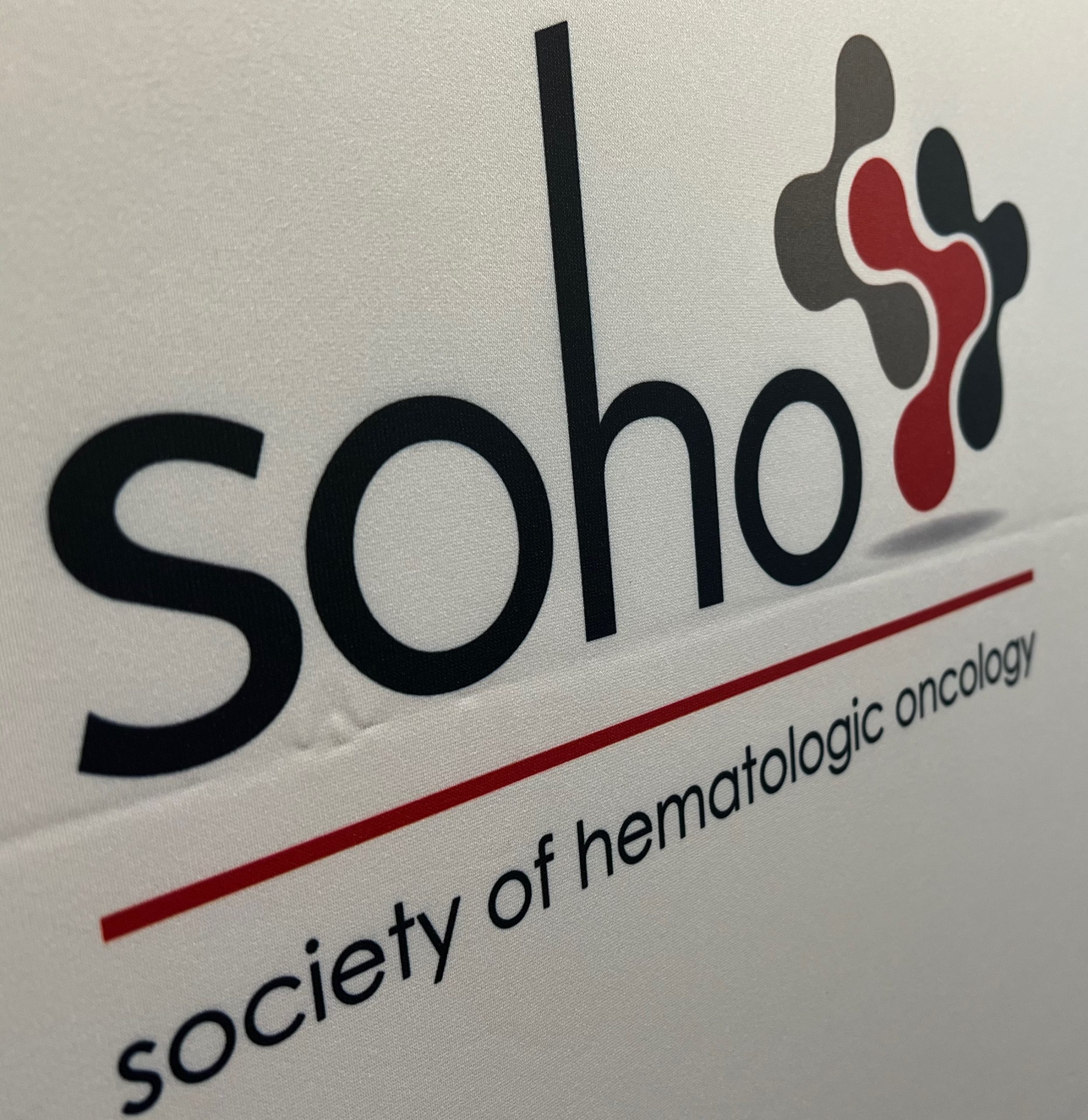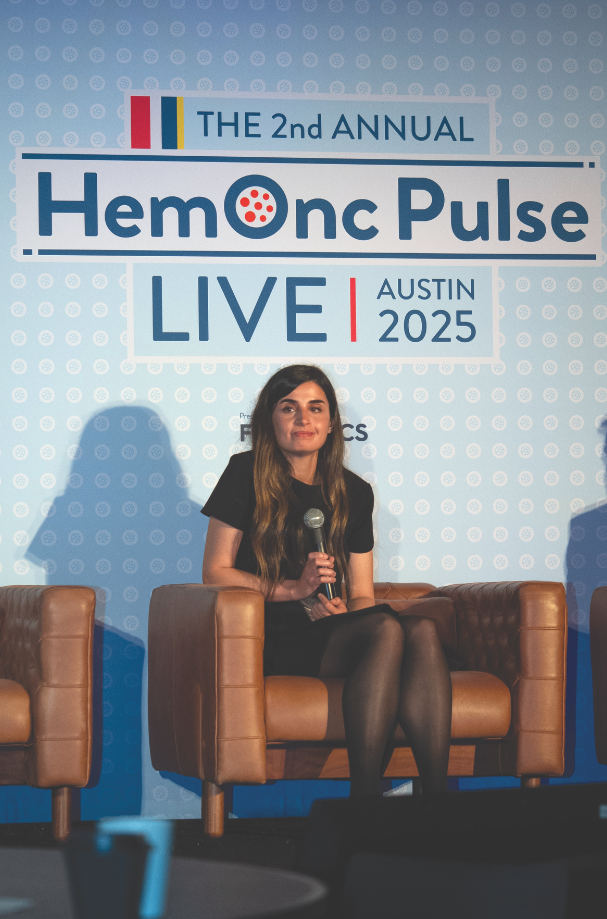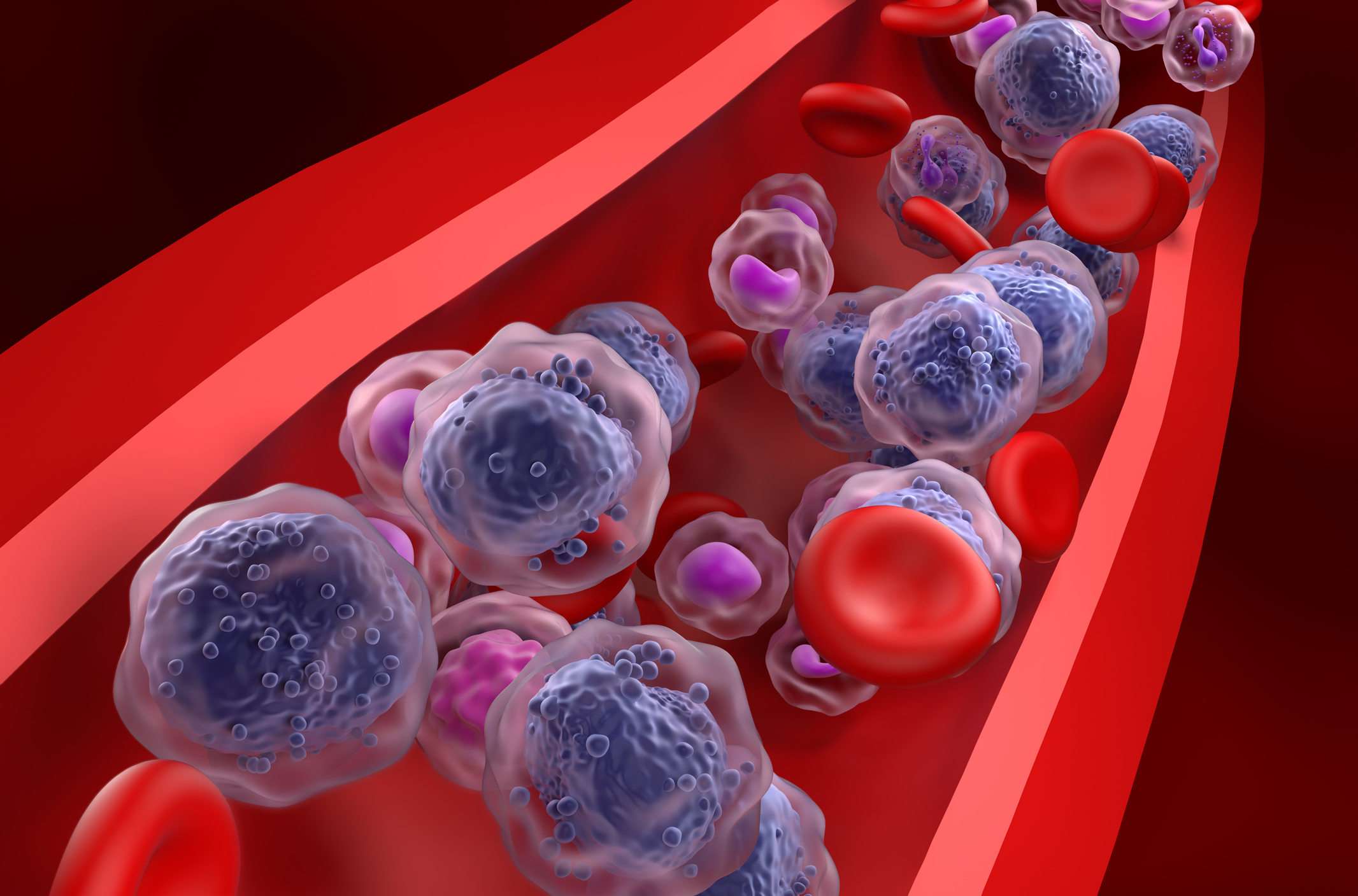
Maria Diez-Campelo, MD, PhD, of the University of Salamanca in Spain, chaired the myelodysplastic syndromes (MDS) Meet the Professor Session at the 2022 Society of Hematologic Oncology Annual Meeting. She also gave a presentation titled, “Treatment of Lower Risk MDS.” Blood Cancers Today interviewed Dr. Diez-Campelo after her session.
Can you talk a bit about your session?
We reviewed lower-risk MDS treatment and all the therapies available for this subset of patients, and the indications, efficacy, and toxicity of the currently available drugs—and, of course, the new approvals that have been recently incorporated in the treatment like luspatercept or oral decitabine plus cedazuridine. We also reviewed new approaches for older drugs that we have used traditionally in the treatment of specific diseases like lenalidomide in the context of patients with del(5q) in a clinical trial called SINTRA-REV. In this trial, we asked for the role of an early treatment in an early phase of the disease.
What are some of the clinical implications of this research, specifically for this subset of patients?
Regarding the SINTRA-REV clinical trial, the main interest is the use of a disease modifier drug (lenalidomide in del(5q) in lower-risk MDS) in patients in early phase of the disease, patients with anemia but not in transfusion requirements, to prevent transfusion dependency. We confirmed in the preliminary analysis of this clinical trial that we can delay and decrease the transfusion dependency of this subset of patients with an adequate safety profile. We also observed some hematological toxicity but no relevant clinical consequences. We’re going to update the results of this trial I hope at the end of this year with the final analysis, and we’re waiting to finalize the trial to identify whether this approach has any impact on the long-term follow-up outcome.
What’s next on the horizon in your research?
I think that in the current treatment of patients with MDS, we must move to an early treatment in most. We should treat patients before transfusion dependency, especially for anemic patients because we must improve quality of life. An early approach is mandatory for most of these patients, especially if we can do it with drugs that have an adequate safety profile that don’t deteriorate quality of life due to toxicities. We must think about different drugs or different schemes with low doses—for example, with hypomethylating agents to improve the results that we have when the patient is in transfusion dependency. We must move to more disease-modifier drugs with this profile of safety and efficacy. We must start with combinations of different drugs. I think that, currently, we have recently approved drugs with a very good safety profile that can be combined with other drugs to improve the results of the previous ones—to improve the percentage of responders as well as the duration of the response to finally improve outcomes. I think that combination studies should be the next step to be addressed in clinical trials.
Maria Diez-Campelo, MD, PhD, of the University of Salamanca in Spain, is a consultant physician and has a scientific background in diagnosis and management of MDS patients.






 © 2025 Mashup Media, LLC, a Formedics Property. All Rights Reserved.
© 2025 Mashup Media, LLC, a Formedics Property. All Rights Reserved.